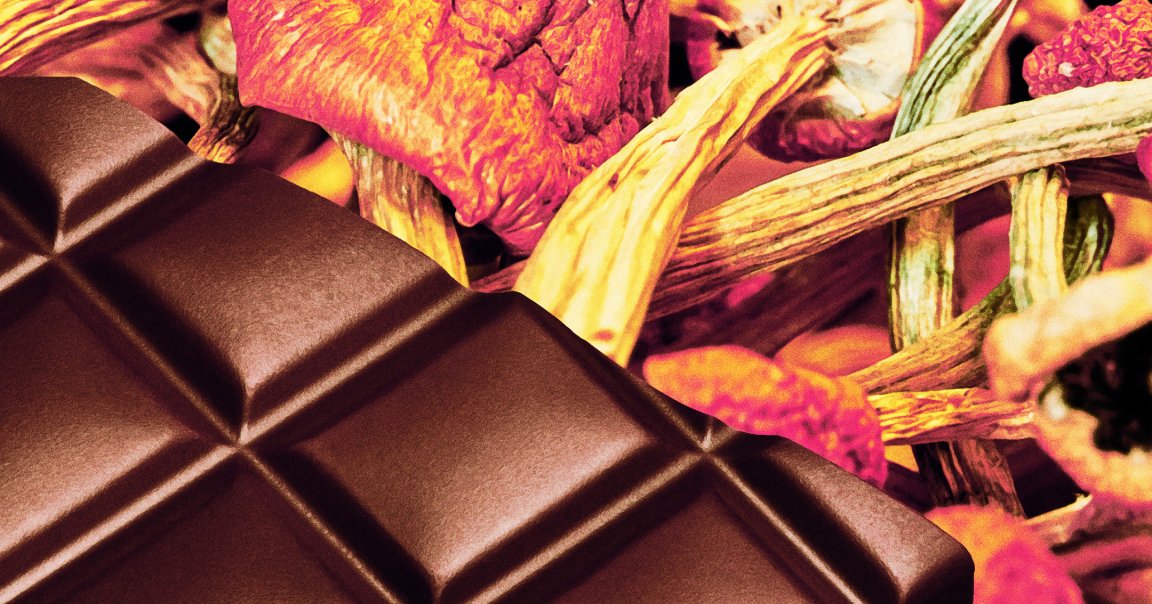
If you’re a coward and don’t want to munch on awful-tasting shrooms to go on a psychedelic odyssey, you can buy delicious edibles infused with their active ingredient instead: psilocybin.
But maybe you shouldn’t, because new research suggests that you might be getting ripped off taking these — or even putting your health at risk.
After testing 12 edible “magic mushroom” products sold in Portland, Oregon, Richard van Breemen and his colleagues found absolutely zero traces of psilocybin in any of them, they reported in a new study published in the journal JAMA Network Open. And four appeared to contain no active, trip-inducing ingredients at all.
“We found no evidence of mushroom compounds of any kind, coming from any species,” van Breemen, a pharmaceutical sciences professor at Oregon State University, told Scientific American.
Moreover, the researchers found ingredients that weren’t written on the label, including — alarmingly — synthetic psychedelics whose effects on human health aren’t well studied.
“We don’t know what harm they might cause,” van Breemen warned.
Psilocybin is touted for its trippy, recreational effects as much as it is for its purported mind-opening health benefits. Long illicit, some states like Oregon and New Mexico have in recent years moved to legalize or at least decriminalize the substance, but sometimes with the catch that they need to be administered in a supervised medical setting. And so outside those pricey official channels, loopholes allow shops to sell the psychedelic substance at cheap prices. This weird legal limbo has birthed a mini — and technically above-board — industry that peddles the drugs, but with little oversight.
“A lot of people are very curious about these substances,” Mason Marks, a law professor at Florida State University, told SciAm. “And if you’re in a state, like Oregon, that does not decriminalize them, people might go to these shops and buy these products that are either blatantly illegal or kind of in this gray area.”
That’s in a nutshell what van Breemen’s team did for the study: they went around Portland buying a host of magic mushroom edibles — mostly gummies but one chocolate — from gas stations and convenience stores.
Initial tests quickly established that none of these actually contained psilocybin. Then, by using mass spectrometry and a technique called liquid chromatography to separate the psychedelic snacks into their individual components, the team found that seven edibles had undisclosed ingredients like caffeine and THC, the drug that produces cannabis’ effects.
That’s noteworthy on its own, since it’s appalling to dose someone with something other than what they intended to take. The most disconcerting find, however, were two different synthetic psychedelic substances whose effects on human health have never been studied, mipracetin and 4-hydroxy-diethyltryptamine. That means oblivious customers, under the impression that they’re simply enjoying a more convenient form of well-studied psilocybin, could be wreaking havoc on their brains without even knowing it.
Other finds suggest an industry in desperate need of stronger oversight. Two of the edible products contained psilocin, the substance that psilocybin is broken down into once it’s ingested by your body. But the lack of other mushroom compounds suggest that the psilocin was synthetic, they concluded — so customers aren’t getting the natural “magic mushrooms” that’re being advertised, while also raising questions about how safely the drug was synthesized.
“Over the years, we’ve tested many botanical dietary supplements,” van Breemen told SciAm. “Rarely do you find 12 products, none of which contain what they’re supposed to contain. So the sample number is small, but the number of mislabeled or adulterated products was significant.”
We see a similar Wild West scenario in the weed industry. Without widespread legalization but a huge appetite for THC products, shady weed vapes and cartridges have flooded the market. Some have been found to contain pesticides and toxic metals. (So have nicotine vapes, for that matter.)
While it’s a good thing that fewer people are going to jail for getting high, a lagging regulatory framework has left an opening for questionable companies to peddle untested goods on eager — but naïve — clientele. Last year, the Centers for Disease Control and Prevention began investigating reports of severe illness after consuming a popular brand of psilocybin edibles, SciAm noted. As of October 2024, 73 hospitalizations and potentially three deaths were tallied across 34 states.
“The mislabeling highlighted in this [study] causes harms,” Lori Bruce, a Yale University bioethicist who studies psychedelics, told the magazine. “And as usage rates increase across the US, harms from retail products are also likely to increase.”
More on drugs: People Are Taking Massive Doses of Psychedelic Drugs and Using AI as a Tripsitter